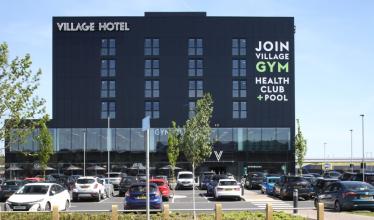Nottingham’s ULEV Experience has released a report of its findings over the two year project, focused on supporting businesses shifting to electric vehicles.
Key findings include:
• A requirement for strategically-planned and joined-up support is required to help businesses shift to ULEVs.
• Different businesses are at different stages in transitioning to a ULEV fleet, ranging from considerable expertise to no knowledge whatsoever – all need to be taken account.
• Public sector organisations can be successful early adopters.
• EV charging infrastructure is a growing concern amongst businesses, and education on existing and planned infrastructure requires considered communication.
• Supporting businesses with ‘try before you buy’ loans proved extremely useful and successful.
Backed by the Nottingham region’s Go Ultra Low Cities funding and delivered by a range of partners, the ULEV Experience ran from April 2018 to March 2020.
Organisations such as Cenex, the Energy Saving Trust, RideWise, and Workplace Travel Service, worked with businesses including DriveElectric and Automotive Comms to deliver a programme to support a range of ULEV initiatives.
Fleet reviews were carried out, ultra low emission vehicle loans delivered for trials, and business engagement events staged to help bolster understanding of ULEVs.
The ‘What We’ve Learnt’ report summarises what the project has achieved and lessons learnt along the way.
Some of the programme’s highlights include coverage of more than 20 events, attended by over 600 delegates. Almost 35 fleet reviews were carried out, with more than 4,300 vehicles reviewed and over 670 replacement ULEVs identified.
These will potentially save more than 1,000 tonnes of carbon emissions each year, and reduce costs by over £269,000.
To find out more and download the report, visit the ULEV Experience website.



